Please fill out the following information, and RRFC Admissions will contact you to discuss our program offerings:
Issue #64
by L. Swift and Jeff McQ


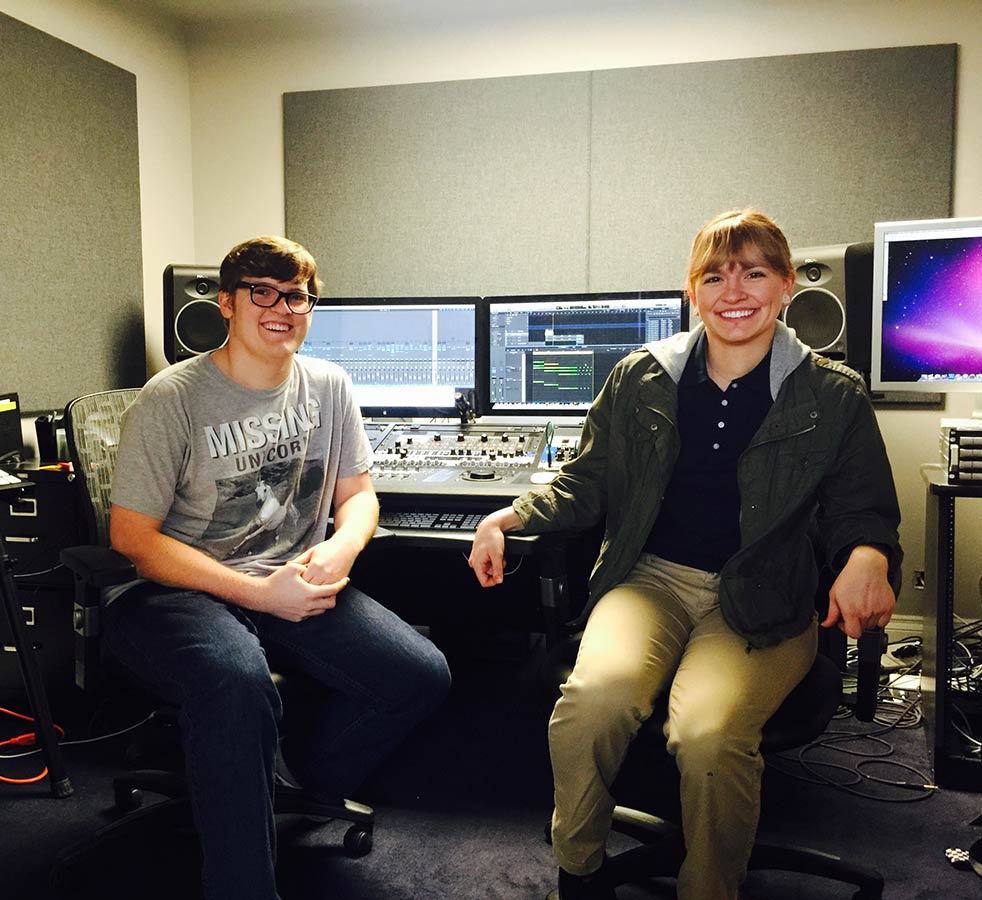 William Crutchfield, an aspiring EDM producer, was already figuring on moving from his home state of Maryland to Los Angeles to try and break into the music scene. Then he found out about the Recording Connection.
“My mom actually found it online,” says William, “and [she] was like, ‘You should check this out, since you want to do music.'”
The on-the-job training factor particularly appealed to William, who wanted the experience and connections but wasn’t thrilled about the idea of going to school. “I’ve never been a fan of the whole traditional school route,” he says. “I mean, I understand it, but at the same time, I feel like it can be such a waste of time…with Recording Connection, you’re getting mentored in a studio…It’s much more likely you can get a job, since you’re getting actual real skills.”
Meanwhile, as William began making plans, his sister, Catalina Crutchfield, an indie singer-songwriter, began to take notice.
“I was not sure what I was doing with my life and where I wanted to be,” she says. “William found out about the program and was going to do it…So I was like, ‘Hey, I like music, I’m interested in the things you’re doing, like what are you doing exactly?'”
As a result, the Recording Connection picked up not one, but two new apprentices. William and Catalina enrolled together, and both were placed with mentor Doug Boulware at The Abstract Recording Studios, a newer Los Angeles, CA studio with plenty of ground-floor opportunities. Almost immediately upon enrolling, the siblings learned the power of connections in a rather unexpected way. Finding an affordable place in the L.A. area can be a challenge, especially when you’re new—but they were put in touch with yet another apprentice, a Film Connection student, and the three went in together on a place to live!
William Crutchfield, an aspiring EDM producer, was already figuring on moving from his home state of Maryland to Los Angeles to try and break into the music scene. Then he found out about the Recording Connection.
“My mom actually found it online,” says William, “and [she] was like, ‘You should check this out, since you want to do music.'”
The on-the-job training factor particularly appealed to William, who wanted the experience and connections but wasn’t thrilled about the idea of going to school. “I’ve never been a fan of the whole traditional school route,” he says. “I mean, I understand it, but at the same time, I feel like it can be such a waste of time…with Recording Connection, you’re getting mentored in a studio…It’s much more likely you can get a job, since you’re getting actual real skills.”
Meanwhile, as William began making plans, his sister, Catalina Crutchfield, an indie singer-songwriter, began to take notice.
“I was not sure what I was doing with my life and where I wanted to be,” she says. “William found out about the program and was going to do it…So I was like, ‘Hey, I like music, I’m interested in the things you’re doing, like what are you doing exactly?'”
As a result, the Recording Connection picked up not one, but two new apprentices. William and Catalina enrolled together, and both were placed with mentor Doug Boulware at The Abstract Recording Studios, a newer Los Angeles, CA studio with plenty of ground-floor opportunities. Almost immediately upon enrolling, the siblings learned the power of connections in a rather unexpected way. Finding an affordable place in the L.A. area can be a challenge, especially when you’re new—but they were put in touch with yet another apprentice, a Film Connection student, and the three went in together on a place to live!
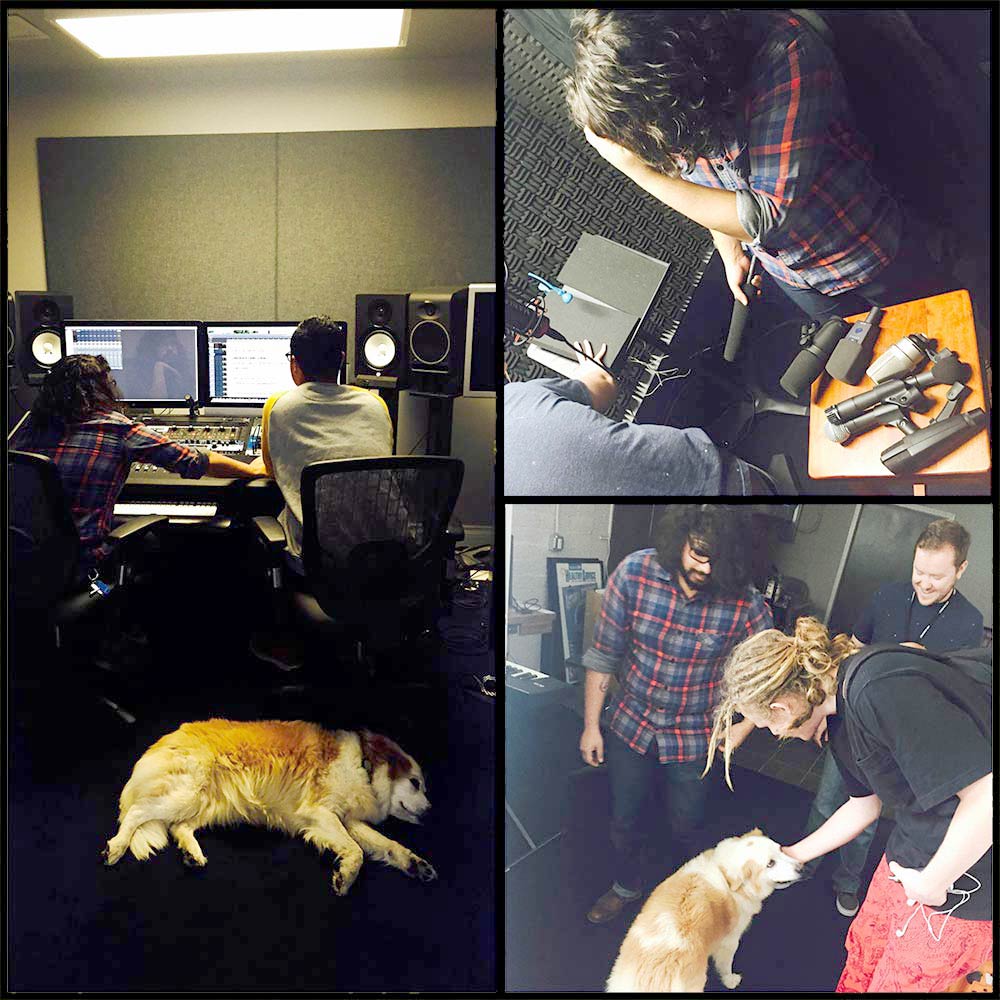 Since beginning his apprenticeship, William is already amazed at what he’s learned, including un-learning some things he’d been doing on his own working with Logic and Ableton.
“When I was teaching myself how to produce, I didn’t understand that you put a reverb or things like that on an aux track,” he says. “I was thinking I wanted a reverb on the track, so I put one on the track [as an insert]…It just blew my mind that I’ve been doing it wrong the whole time.”
Meanwhile, William is immersing himself in the music of the studio (“It’s really cool seeing how many people are into electronic music and how big it is out here,” he says), and he thrives on the creative vibe of the studio itself.
“It seems like every day I go into the studio, some different song is playing on the speakers that someone was working on,” he says. “The thing that I love about this studio is that it’s very laid back, in a way…it’s very creatively friendly environment. I just love that about it. They are always helpful. Doug said to me once, ‘If you’re here, and you’re not learning, you’re wasting your time. You should be learning when you’re here.’ It’s just a great experience overall.”
Catalina agrees. “Everyone here is really awesome and helpful, and it’s so easy to get along with everyone. It’s a great environment,” she says. “All the questions I have, they’re answered right then and there. It’s a great learning experience, for so many reasons.”
So, with a brother and sister apprenticing at the same studio, is there sibling rivalry? Don’t count on it. “We help each other out,” says William. “[I understand] using a DAW and everything because I started producing myself, whereas she hasn’t. So I can help her with it.”
Since beginning his apprenticeship, William is already amazed at what he’s learned, including un-learning some things he’d been doing on his own working with Logic and Ableton.
“When I was teaching myself how to produce, I didn’t understand that you put a reverb or things like that on an aux track,” he says. “I was thinking I wanted a reverb on the track, so I put one on the track [as an insert]…It just blew my mind that I’ve been doing it wrong the whole time.”
Meanwhile, William is immersing himself in the music of the studio (“It’s really cool seeing how many people are into electronic music and how big it is out here,” he says), and he thrives on the creative vibe of the studio itself.
“It seems like every day I go into the studio, some different song is playing on the speakers that someone was working on,” he says. “The thing that I love about this studio is that it’s very laid back, in a way…it’s very creatively friendly environment. I just love that about it. They are always helpful. Doug said to me once, ‘If you’re here, and you’re not learning, you’re wasting your time. You should be learning when you’re here.’ It’s just a great experience overall.”
Catalina agrees. “Everyone here is really awesome and helpful, and it’s so easy to get along with everyone. It’s a great environment,” she says. “All the questions I have, they’re answered right then and there. It’s a great learning experience, for so many reasons.”
So, with a brother and sister apprenticing at the same studio, is there sibling rivalry? Don’t count on it. “We help each other out,” says William. “[I understand] using a DAW and everything because I started producing myself, whereas she hasn’t. So I can help her with it.”
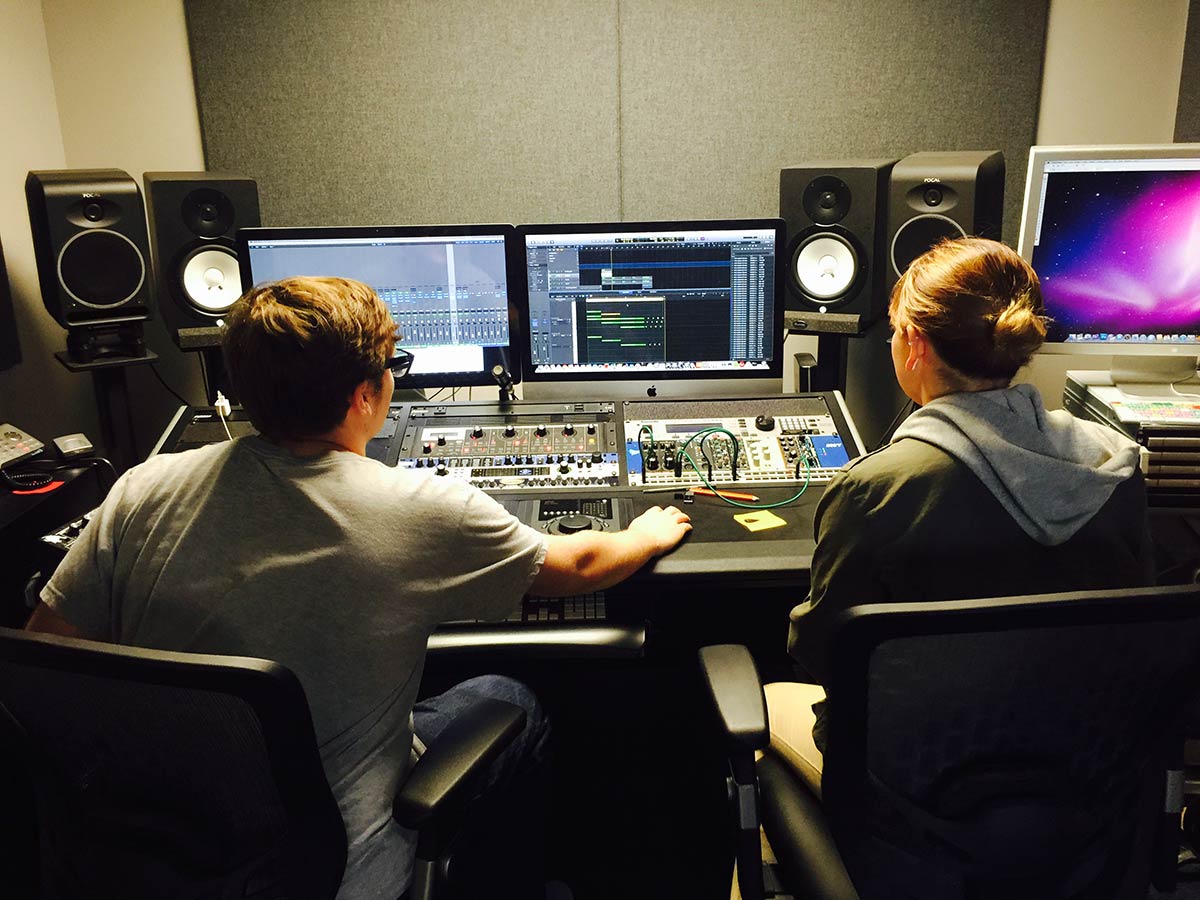 Likewise, Catalina’s tastes in indie music are expanding her brother’s musical palate, as well. “I think we match pretty well,” she says. “He listens to a lot of house and dubstep type things, and I enjoy that too, but it’s not my go-to…I don’t listen to mainstream music, so it’s kind of out there what I listen to sometimes, and he is just like, ‘Oh, that’s different!’ We just learn from each other.”
In fact, despite their differences in musical tastes, the siblings are finding creative ways to collaborate during their course. “I’m definitely more into the EDM stuff, whereas she is more into indie,” says William. “But there is some middle ground.”
What is the “middle ground?” How about Tropical House? More specifically, a house track with tropical overtones that William and Catalina are collaborating on. “We are working on something right now,” says Catalina. “[William is] gonna essentially make the music part of it, then I’m coming up with the lyrics, so [we have] something going with that.”
Even so, Catalina and William both can definitely see how training on-the-job is preparing them for their respective dreams. For William, who loves being on the ground floor of an emerging recording studio like The Abstract, it’s more on the production side. In fact, this past week William actually took the helm for two recording sessions. “It was an amazing experience,” he says. “Jesse [the head engineer] also let me know that I will be getting more involved with projects they are working on, so I’m super excited about that!”
For Catalina, who views herself more as an indie performer, the studio training is giving her a solid foundation for her future as an artist. “My main goal is to perform and make my own music and really go far with that,” she says. “I think since I am here learning it all and getting to experience it all, I’ll be able to do that better now, and really know what I want and how I can achieve it.”
Likewise, Catalina’s tastes in indie music are expanding her brother’s musical palate, as well. “I think we match pretty well,” she says. “He listens to a lot of house and dubstep type things, and I enjoy that too, but it’s not my go-to…I don’t listen to mainstream music, so it’s kind of out there what I listen to sometimes, and he is just like, ‘Oh, that’s different!’ We just learn from each other.”
In fact, despite their differences in musical tastes, the siblings are finding creative ways to collaborate during their course. “I’m definitely more into the EDM stuff, whereas she is more into indie,” says William. “But there is some middle ground.”
What is the “middle ground?” How about Tropical House? More specifically, a house track with tropical overtones that William and Catalina are collaborating on. “We are working on something right now,” says Catalina. “[William is] gonna essentially make the music part of it, then I’m coming up with the lyrics, so [we have] something going with that.”
Even so, Catalina and William both can definitely see how training on-the-job is preparing them for their respective dreams. For William, who loves being on the ground floor of an emerging recording studio like The Abstract, it’s more on the production side. In fact, this past week William actually took the helm for two recording sessions. “It was an amazing experience,” he says. “Jesse [the head engineer] also let me know that I will be getting more involved with projects they are working on, so I’m super excited about that!”
For Catalina, who views herself more as an indie performer, the studio training is giving her a solid foundation for her future as an artist. “My main goal is to perform and make my own music and really go far with that,” she says. “I think since I am here learning it all and getting to experience it all, I’ll be able to do that better now, and really know what I want and how I can achieve it.”
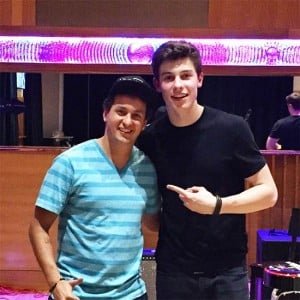 Recording Connection grad Sebastian Lefeld (Miami, FL) is recording vocals for none other than rising pop sensation Shawn Mendes, whose album Handwritten just debuted at the TOP of the Billboard 200 charts, making him the youngest artist to top the chart in nearly five years (Justin Bieber was the last 16-year-old to nab the top spot in 2010)! Sebastian says, “Shawn was a pleasure to work with and has a killer voice!”
Recording Connection grad Sebastian Lefeld (Miami, FL) is recording vocals for none other than rising pop sensation Shawn Mendes, whose album Handwritten just debuted at the TOP of the Billboard 200 charts, making him the youngest artist to top the chart in nearly five years (Justin Bieber was the last 16-year-old to nab the top spot in 2010)! Sebastian says, “Shawn was a pleasure to work with and has a killer voice!”
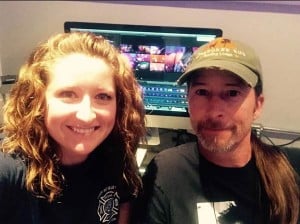 Film Connection apprentice Jaclyn McGrew at WestArtVideo in Charlotte, NC, has been having a blast editing a recent music video. “[It] was like putting a puzzle together, except I had to create the idea of what the final puzzle was going to look like,” she says “The two videos that I ended up finishing were so good the band posted them on all of their social media sites.”
Film Connection apprentice Jaclyn McGrew at WestArtVideo in Charlotte, NC, has been having a blast editing a recent music video. “[It] was like putting a puzzle together, except I had to create the idea of what the final puzzle was going to look like,” she says “The two videos that I ended up finishing were so good the band posted them on all of their social media sites.”
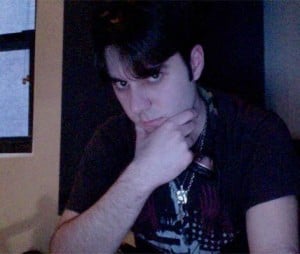
 Recent Recording Connection grad Mike Messina of White Plains, NY had a groovy time running live sound for the Clockwork Players’ production of Hair and has landed a job as their Sound Designer/Engineer for the season! His mom emailed us to brag: “My husband and I are over the moon for Michael. Thanks to your school and his mentor, Robert Sax, he was taught so well in his Bachelor’s Program and then Master’s Program…Thank you so much to you and your staff. We are grateful.”
Recent Recording Connection grad Mike Messina of White Plains, NY had a groovy time running live sound for the Clockwork Players’ production of Hair and has landed a job as their Sound Designer/Engineer for the season! His mom emailed us to brag: “My husband and I are over the moon for Michael. Thanks to your school and his mentor, Robert Sax, he was taught so well in his Bachelor’s Program and then Master’s Program…Thank you so much to you and your staff. We are grateful.”
 Recording Connection apprentice Alexa Cooper (Vancouver, B.C.) recently had not one, but two job interviews—one for her mentor’s studio, Blue Light Studios, and one at a rehearsal space used by the likes of Avril Lavigne, John Mayer, and Rancid!
Recording Connection apprentice Alexa Cooper (Vancouver, B.C.) recently had not one, but two job interviews—one for her mentor’s studio, Blue Light Studios, and one at a rehearsal space used by the likes of Avril Lavigne, John Mayer, and Rancid!
 Film Connection mentor Christine Chen is the founder and CEO of Moth to Flame Films, a full-service production company based in the vibrant film community of Austin, Texas. Her company takes on a wide range of projects, ranging from commercial work to music videos to video blogs to feature films. As such, Christine offers a unique take on “making it” in the industry, and her externs have access to a broad base of experience under her mentoring.
We caught up recently with Christine toward the end of South-By-Southwest (SXSW) in Austin. During our conversation, she offered insights into the importance of having passion for the work, and what it takes to make it in the business today. She also talked about what she looks for in an extern, her unique perspective on parents’ concerns for their kids who want to get into film, and even bragged a bit on some of her students. Highlights from the conversation are below!
Film Connection mentor Christine Chen is the founder and CEO of Moth to Flame Films, a full-service production company based in the vibrant film community of Austin, Texas. Her company takes on a wide range of projects, ranging from commercial work to music videos to video blogs to feature films. As such, Christine offers a unique take on “making it” in the industry, and her externs have access to a broad base of experience under her mentoring.
We caught up recently with Christine toward the end of South-By-Southwest (SXSW) in Austin. During our conversation, she offered insights into the importance of having passion for the work, and what it takes to make it in the business today. She also talked about what she looks for in an extern, her unique perspective on parents’ concerns for their kids who want to get into film, and even bragged a bit on some of her students. Highlights from the conversation are below!
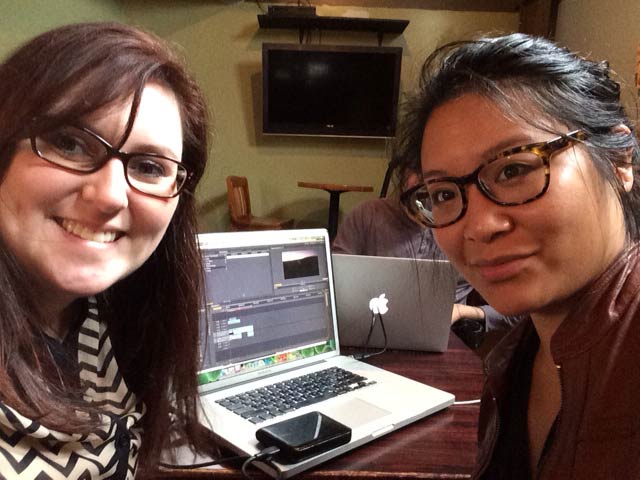 RRFC: So when a potential student comes in to interview with you, what’s the biggest quality you’re looking for?
Christine: Honestly, there’s a few. Enthusiasm is one of them, a clear passion for it. Someone who is proactive, someone who does not—who isn’t going to sit there and think that someone’s going to hand them something. Who’s there, who’s willing to take the chance, take the initiative to get what they want out of the program. Actually, those two [things]: If you are passionate, and if you have the guts and the drive to get what you want, it’s really all you need. The other stuff you can learn right on the set. When I walked on the set, I didn’t know what a “slate” was but now I’ve probably made more films than some people who have gone to film school. You just have to have that drive, and that’s what I look for.
RRFC: Do any of your current externs stand out for you?
Christine: Kellie [Koford] is great…She was excited about a new chapter in her life, and she didn’t know what to expect, but she came in with an open heart with the mentality that she would do whatever it takes to try to give her dream a chance. I love people like that. I don’t need someone who comes in saying they know everything. She came in saying, “I will do whatever,” and she was very enthusiastic…Kenny [Horton] is really great as well, he’s great because he actually came in with some experience so it was really easy to get him to jump in. I like people who are proactive, and they’re excited to learn. Those two stand out at this point, definitely.
RRFC: What do you particularly enjoy about being a mentor?
Christine: I enjoy mentoring a lot. I think mentoring helps me learn as well, because students have questions on what I always took for granted…I just watched a documentary [here at SXSW] on Michelin-starred restaurants, and one of the chefs said, “Hey I want my mentee to pass me because that means I did a good job.” I kind of feel that way, too. I think if you can get other people to love it just as much as you do, in the end it’s all good for everybody, because we all brace each other up.
RRFC: Why do you love making films so much?
Christine: For me, it is the ability to affect people emotionally in telling a story. That’s the part I like the most. I wouldn’t say I’m an introvert, but I can be at times, and I just keep to myself, so it’s a way for me to feel like I’ve touched someone or affected someone in an emotional way, and I like that. I think people will remember things more if it’s affected them in an emotional way, and I think media is extremely impactful because of that…I also love the process of it, being able to work with a bunch of different people who also have their own ideas as well. Finding how you all mesh together.
RRFC: So when a potential student comes in to interview with you, what’s the biggest quality you’re looking for?
Christine: Honestly, there’s a few. Enthusiasm is one of them, a clear passion for it. Someone who is proactive, someone who does not—who isn’t going to sit there and think that someone’s going to hand them something. Who’s there, who’s willing to take the chance, take the initiative to get what they want out of the program. Actually, those two [things]: If you are passionate, and if you have the guts and the drive to get what you want, it’s really all you need. The other stuff you can learn right on the set. When I walked on the set, I didn’t know what a “slate” was but now I’ve probably made more films than some people who have gone to film school. You just have to have that drive, and that’s what I look for.
RRFC: Do any of your current externs stand out for you?
Christine: Kellie [Koford] is great…She was excited about a new chapter in her life, and she didn’t know what to expect, but she came in with an open heart with the mentality that she would do whatever it takes to try to give her dream a chance. I love people like that. I don’t need someone who comes in saying they know everything. She came in saying, “I will do whatever,” and she was very enthusiastic…Kenny [Horton] is really great as well, he’s great because he actually came in with some experience so it was really easy to get him to jump in. I like people who are proactive, and they’re excited to learn. Those two stand out at this point, definitely.
RRFC: What do you particularly enjoy about being a mentor?
Christine: I enjoy mentoring a lot. I think mentoring helps me learn as well, because students have questions on what I always took for granted…I just watched a documentary [here at SXSW] on Michelin-starred restaurants, and one of the chefs said, “Hey I want my mentee to pass me because that means I did a good job.” I kind of feel that way, too. I think if you can get other people to love it just as much as you do, in the end it’s all good for everybody, because we all brace each other up.
RRFC: Why do you love making films so much?
Christine: For me, it is the ability to affect people emotionally in telling a story. That’s the part I like the most. I wouldn’t say I’m an introvert, but I can be at times, and I just keep to myself, so it’s a way for me to feel like I’ve touched someone or affected someone in an emotional way, and I like that. I think people will remember things more if it’s affected them in an emotional way, and I think media is extremely impactful because of that…I also love the process of it, being able to work with a bunch of different people who also have their own ideas as well. Finding how you all mesh together.
 Brian had such a successful trip to Nashville, Tennessee, we thought we would share information on another one of his meetings where he formalized a relationship with a top industry pro to be part of our Masters Mentor program: this time, with engineer, producer and educator Bil VornDick.
Bil VornDick’s artistry as a producer and engineer has helped earn his clients over 40 GRAMMY® nominations and seven wins (among them Alison Krauss’s very first GRAMMY). He has worked on dozens of albums during his 40 years in music. These include projects for such other GRAMMY recipients as Ralph Stanley, Marty Robbins, Béla Fleck, Jerry Douglas, Mark O’Connor, and jazz bassist Charlie Haden, as well as for legendary troubadour Jesse Winchester and bluegrass empress Rhonda Vincent. His credits appear on number-one albums in five different musical genres. An active member of the Nashville music scene, Bil is also one of the authors of and committee members for the AES/Recording Academy archival document “Recommendation for Delivery of Recorded Music Projects.” VornDick’s dedication to the music industry is further evidenced by his advisory, administrative and/or instructional work for Belmont University, South Plains College, Middle Tennessee State University, the North American Folk Alliance, The Recording Academy, MerleFest, the Telluride Music Festival, Swannanoa Gathering and Sweetwater
“Knowing the caliber of Bil’s work, it was great sitting down with him for coffee and talking about the various sessions he’s done and having him share his knowledge and philosophy of audio engineering,” stated Brian Kraft. “Bil is a man of great integrity and we are honored to work with him as a mentor.”
“It is so important that anyone getting an audio education learns not only how to mic a drum kit or push a fader, but how to work and interact with an artist or producer — and to be aware and sensitive to what their needs are. They need to know when to talk and more importantly when NOT to talk,” commented VornDick. “I try sharing my knowledge, and instilling a work ethic that will let that student walk into a recording situation and do their job, and yet be invisible doing what they do. That is the art. I really like the Recording Connection’s philosophy of how someone learns how to become a recording engineer. I am looking forward to them finding me the right apprentice, and in turn, I will find the right project to work with him or her on.”
Brian had such a successful trip to Nashville, Tennessee, we thought we would share information on another one of his meetings where he formalized a relationship with a top industry pro to be part of our Masters Mentor program: this time, with engineer, producer and educator Bil VornDick.
Bil VornDick’s artistry as a producer and engineer has helped earn his clients over 40 GRAMMY® nominations and seven wins (among them Alison Krauss’s very first GRAMMY). He has worked on dozens of albums during his 40 years in music. These include projects for such other GRAMMY recipients as Ralph Stanley, Marty Robbins, Béla Fleck, Jerry Douglas, Mark O’Connor, and jazz bassist Charlie Haden, as well as for legendary troubadour Jesse Winchester and bluegrass empress Rhonda Vincent. His credits appear on number-one albums in five different musical genres. An active member of the Nashville music scene, Bil is also one of the authors of and committee members for the AES/Recording Academy archival document “Recommendation for Delivery of Recorded Music Projects.” VornDick’s dedication to the music industry is further evidenced by his advisory, administrative and/or instructional work for Belmont University, South Plains College, Middle Tennessee State University, the North American Folk Alliance, The Recording Academy, MerleFest, the Telluride Music Festival, Swannanoa Gathering and Sweetwater
“Knowing the caliber of Bil’s work, it was great sitting down with him for coffee and talking about the various sessions he’s done and having him share his knowledge and philosophy of audio engineering,” stated Brian Kraft. “Bil is a man of great integrity and we are honored to work with him as a mentor.”
“It is so important that anyone getting an audio education learns not only how to mic a drum kit or push a fader, but how to work and interact with an artist or producer — and to be aware and sensitive to what their needs are. They need to know when to talk and more importantly when NOT to talk,” commented VornDick. “I try sharing my knowledge, and instilling a work ethic that will let that student walk into a recording situation and do their job, and yet be invisible doing what they do. That is the art. I really like the Recording Connection’s philosophy of how someone learns how to become a recording engineer. I am looking forward to them finding me the right apprentice, and in turn, I will find the right project to work with him or her on.”

RRFC is education upgraded for the 21st century.
Get the latest career advice, insider production tips, and more!
Please fill out the following information, and RRFC Admissions will contact you to discuss our program offerings:
Stay in the Loop: Subscribe for RRFC news & updates!
© 2025 Recording Radio Film Connection & CASA Schools. All Rights Reserved.

